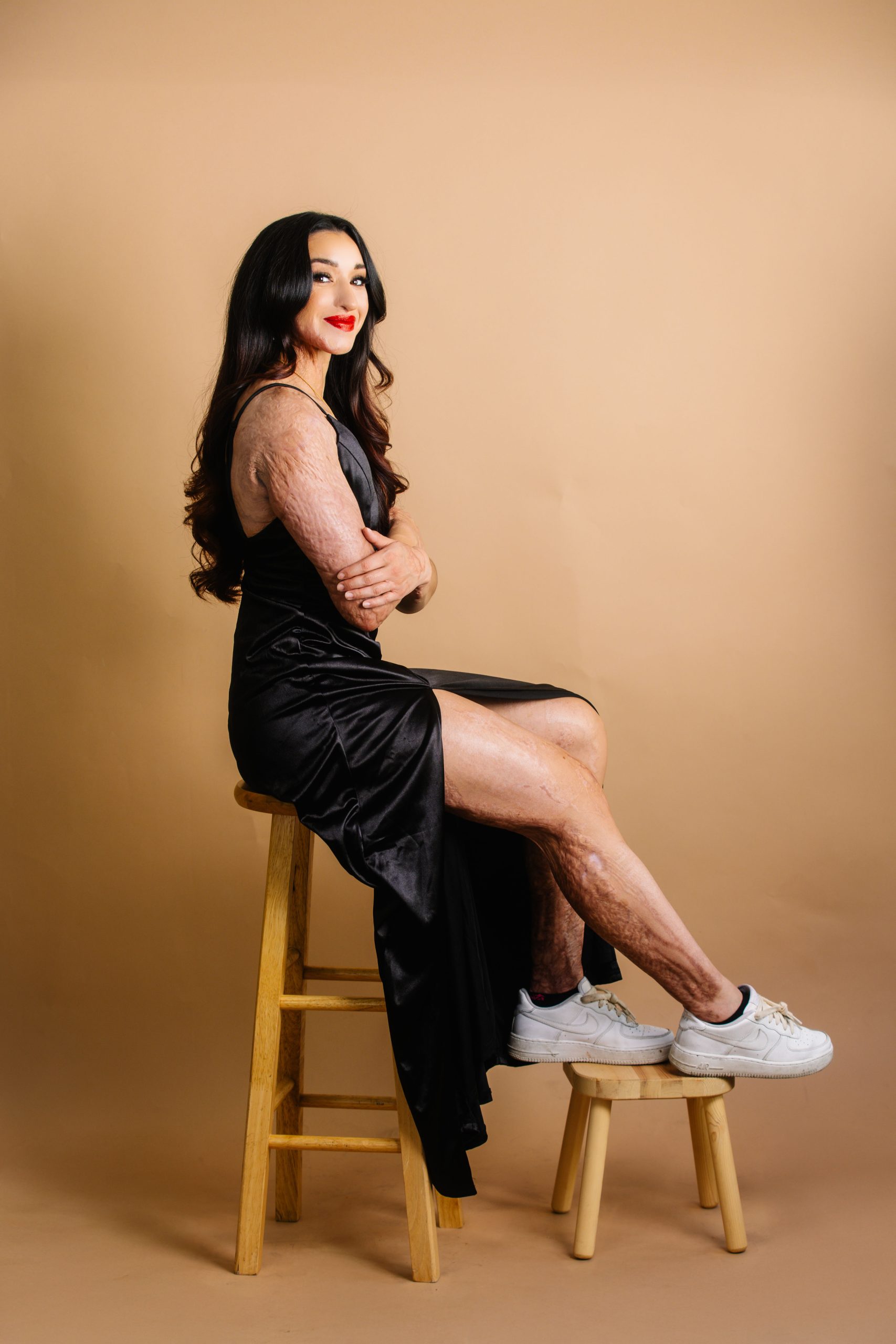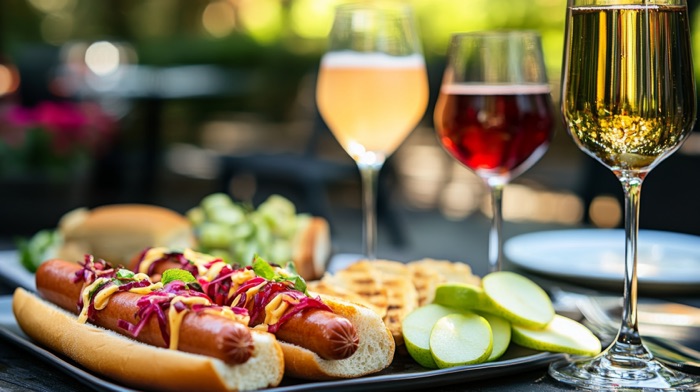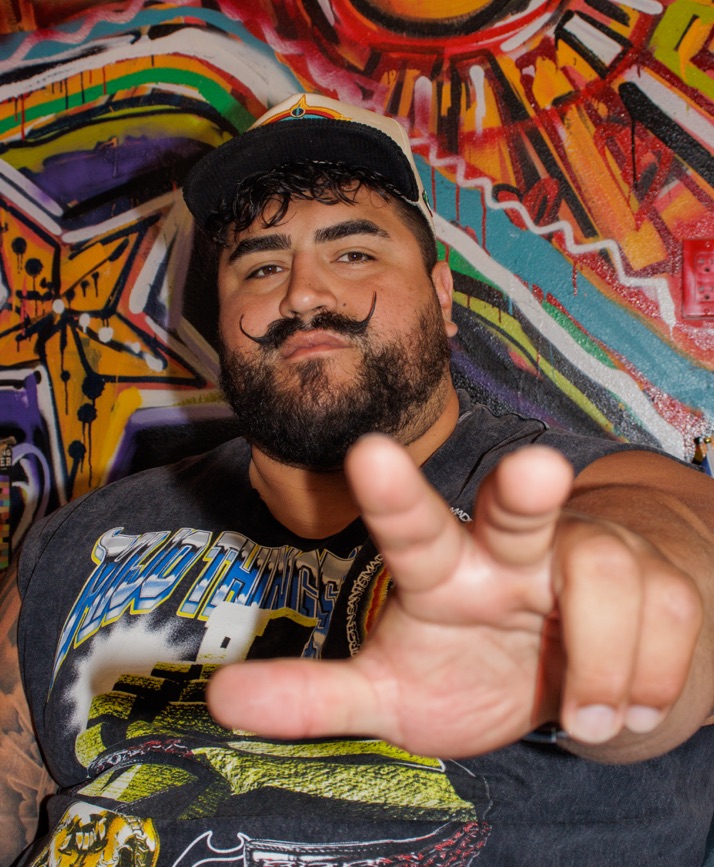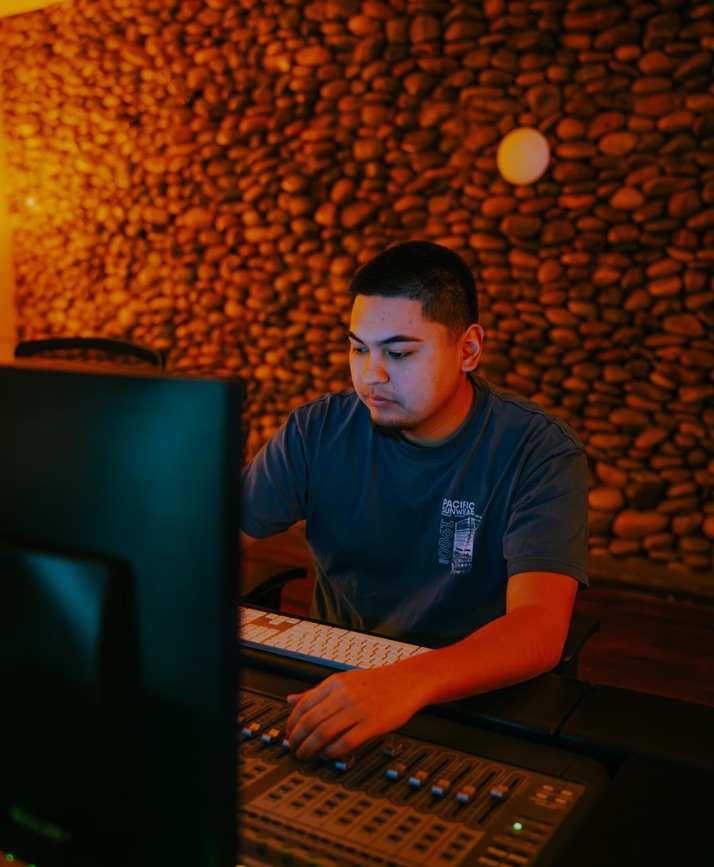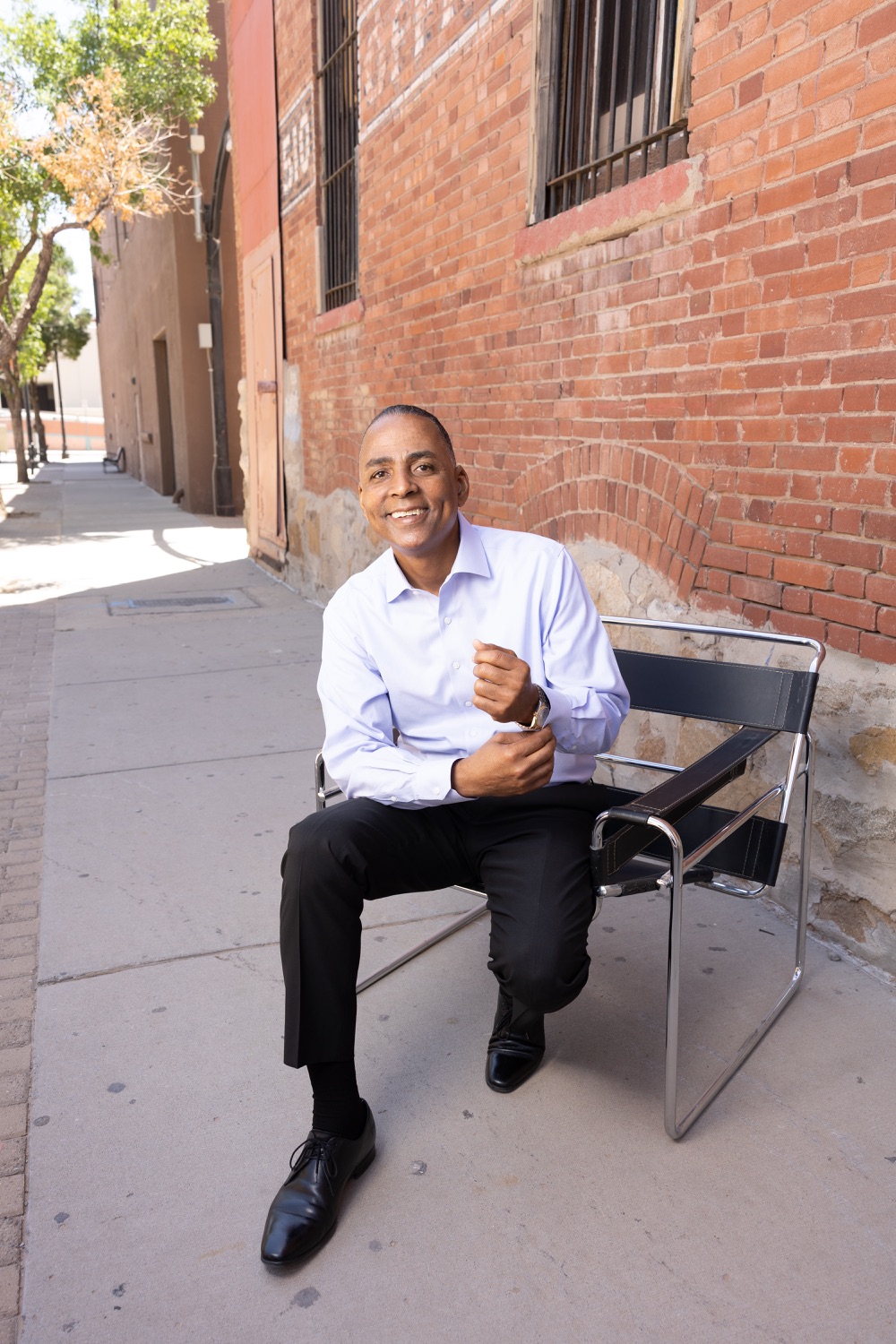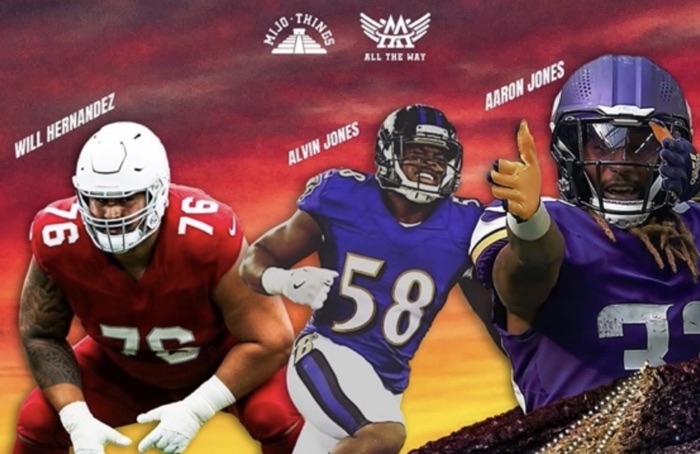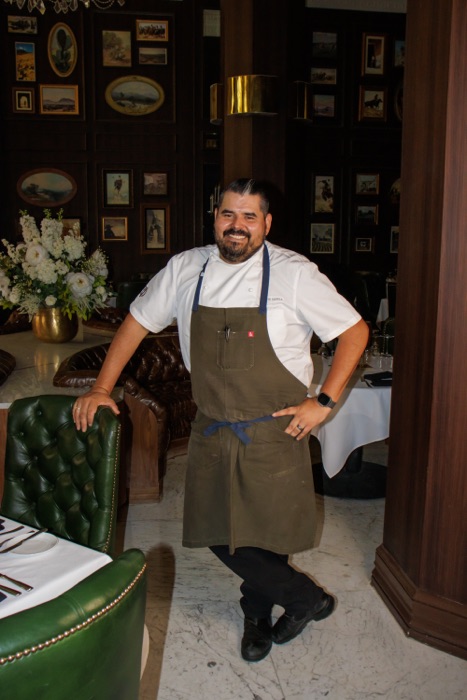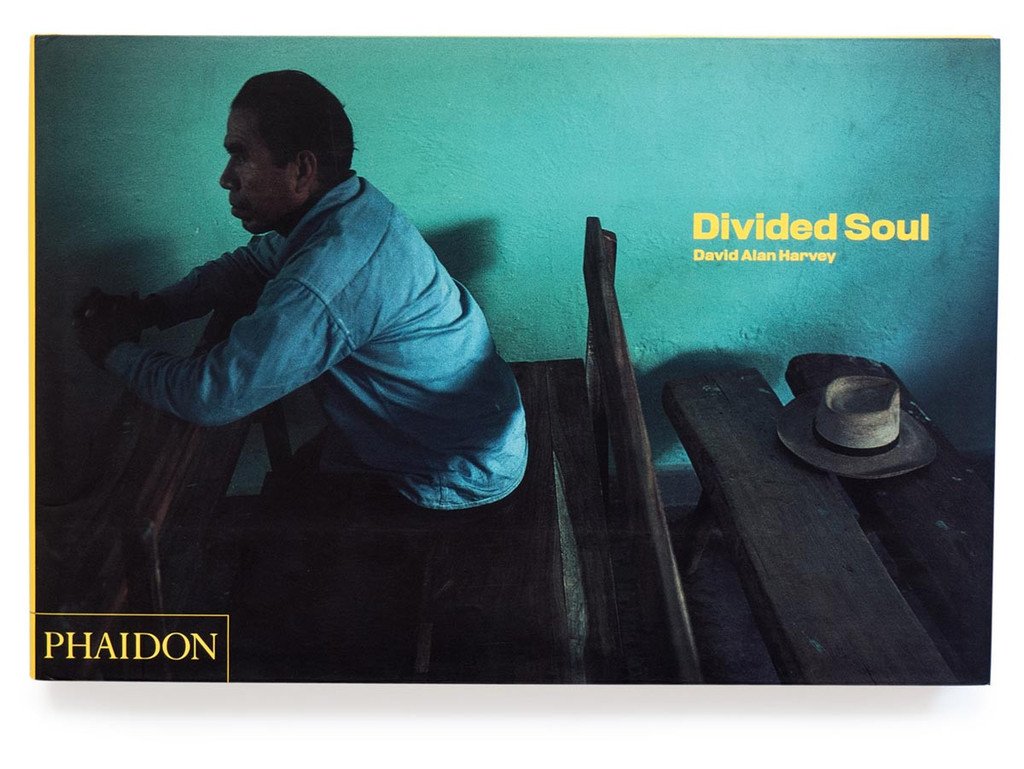By
Erin Coulehan
Editorial photography by
Annabella Mireles
Editorial assistants
Katherine Kocian
Nicole DeRouen
Hair by
Emily Mullen
Makeup by
Face It by Claudia
Venue
Studio 4B
In less than a minute, he tried to kill her three times.
He failed each time.
Davina Licon is a resilient young woman whose life story underscores the crisis of domestic violence, a tragedy that surfaces, seemingly unprovoked, in the lives of women. She speaks with quiet strength, a strength first honed through her dedication to bodybuilding.
“In high school, I started going to the gym. I just started lifting heavy weights and then I started to see my body change,” she remembers. Lifting became a foundation, and, over the years, it forged a well of resilience she would soon need more than she could ever have imagined.
It was a normal day when she left the gym in Hawaii, a place she loved for its open skies and close-knit sense of community.
She was happy, savoring the joy of another solid workout when someone approached her in the parking lot, gun in hand.
It was a former romantic interest, whom she believed she was on okay terms with. They hadn’t seen or spoken in months.
“I was just in shock. He shot, and I literally saw the bullet leave the barrel. I really thought ‘this is it,’” she says.
The gun jammed, a small miracle, but what followed was horrific: acid, thrown over her body in a brutal act of vengeance.
“At first, I didn’t know what he had thrown on me,” says Licon. “But then it started burning.”
As she sprinted back to the gym, she realized the magnitude of the attack.
This man, whose unsettling behavior she had distanced herself from, had intended not only to harm but to alter the course of her life.
And he succeeded, but not in the way he anticipated.
The burns she suffered devastated her body, her skin bearing marks from the acid that “literally melted” away her flesh. She was placed in a coma for a week and spent three long months in the hospital, grappling with pain, surgeries, and the weight of a trauma few can fathom.
The CDC reports that nearly every 1 in 2 women in the United States will face physical violence from an intimate partner at some point in their lifetime, with more than 16 million people in the U.S. suffering from intimate partner violence per year.
Every minute, 32 people in the country experience intimate partner violence.
Through her own words, Licon sheds light on the dark nature of unrequited love and the violence that often shadows women who simply say no. “Rejection is one of the most dangerous things a woman can do,” she says. This powerful observation reflects a harsh reality that many women suffer in silence, unable to report or resist for fear of a violent response.
She now speaks openly about her journey, aiming to raise awareness about acid attacks and domestic violence.
She works with Face Forward, an organization providing surgeries and support to survivors, allowing her to heal and find purpose in helping others.
“I think that’s my calling,” she says. Sharing her story has become a lifeline, offering her healing while ensuring others know they are not alone.
Today, her beauty radiates from within, a light that defies her scars.
“Beauty, I really believe, is l within. It doesn’t matter how you look. If you truly are beautiful, it will show on the outside.” It’s a message Licon lives daily, a testament to her strength that no attacker could ever strip away.
“The initial support and connection were intense, and even though I typically keep my space, especially since everything that happened, I could feel the strength of others coming through,” she says.
Her mom, who raised her as a single parent, modeled an independent mindset, one that maybe leaned toward a negative perception of men.
“It wasn’t just my upbringing; it was boys I met later who somehow confirmed what I already felt,” Licon recalls. “My mindset became, ‘I don’t need a man. I’m independent.’ But even though I’m cautious, knowing there are good men out there, it’s unnerving to feel like my view was proven right in such a harsh way at such a young age. And when guys try to talk to me now, it’s just like, ‘You don’t know what I’ve been through.’”
People often ask if she’s taking any precautions, like self-defense training or carrying a weapon.
“I want a gun,” she says. “I think about how different things might’ve been that night if I’d had one. In high school, I got certified in some basics through law enforcement classes, but I’d take a refresher course.”
She’s received offers from Hawaiian fitness trainers who run kickboxing gyms or teach jiu-jitsu.
“They’re generous, invitations for free classes that I’d absolutely take if I were there. It’s frustrating, though, how we have to go the extra mile just to feel safe. Why do we have to protect ourselves like this?”
Her attacker remains in police custody awaiting trial in Hawaii for both Licon’s assault, as well as a second acid attack of a woman at a gym that he planned with an accomplice while in jail.
Licon is unafraid of giving her testimony.
“I feel ready now for the court process. I want him to see me, to see what he did to me. It’s nerve-wracking, but I’m prepared to walk in with my head high. I’m not afraid of him. It’s just so twisted. The fact that he orchestrated another attack from behind bars to make it seem like he wasn’t the one responsible for mine. That poor girl, attacked outside of a gym, just like me. They have all the evidence linking him to both attacks, and still, this case could take years. How did he even get the chance to do this again while still in custody? It makes you wonder why people like this are allowed any room to move freely in society. The attorneys tell me it could be five years before we get a verdict, but I’ll be there every step of the way,” she says.
Today, she’s working, rebuilding her life one day at a time, and preparing for her next surgery.
“Mostly, I just love spending time with friends and family, finding meaning in those little moments people sometimes overlook,” she says. “Working at the gym, I talk to so many people who see the scars and ask, ‘What happened?’ And when I tell them, they’re surprised, a little shocked. But then they see me, still pushing, working out, moving forward. It feels good knowing my story might be inspiring others, showing them that you can go through something hard and come out stronger.”




